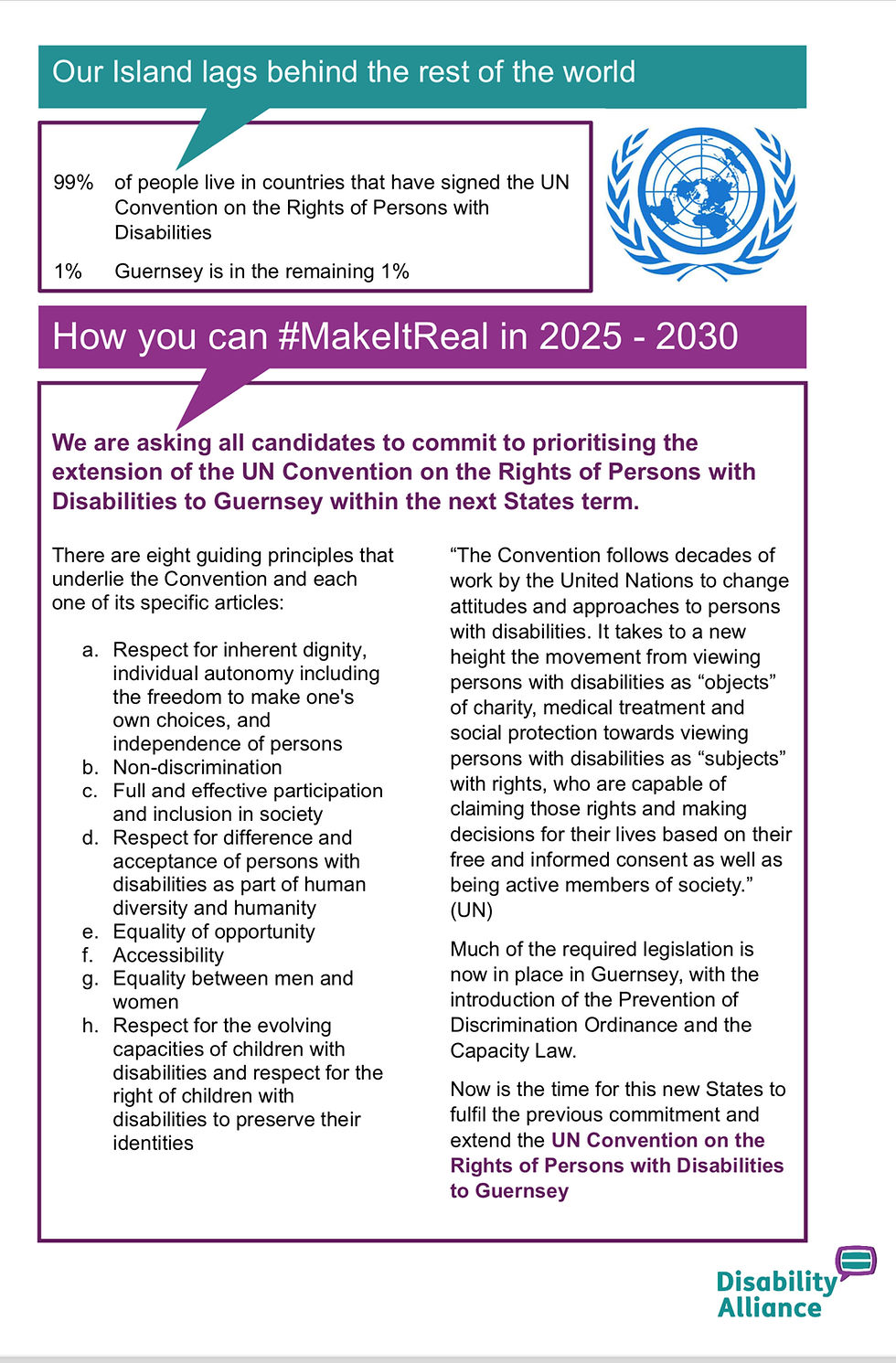Cannabis in Guernsey: Time to End the Limbo and Embrace Reform
- May 17, 2025
- 3 min read

Cannabis reform in Guernsey is long overdue. While some small steps have been taken in recent years—particularly around medicinal access—our current policy sits awkwardly in a halfway house, neither here nor there. And it is failing people.
I have always been in favour of reform. During my time in the 2016–2020 Assembly, I was part of the push to develop a more health-centred approach to drug policy. As the States’ Disability Champion, I saw first-hand the heartbreak that outdated laws caused vulnerable islanders.
I will never forget the case of someone with multiple sclerosis who had read about the benefits of medicinal cannabis. Desperate for relief, they ordered a product online—not realising it was illegal. They weren’t trying to flout the law or engage in criminality; they were simply trying to live with less pain. But the law was enforced, and they ended up with a criminal record. That is not justice. That is a failure of compassion, common sense and policy.
Since 2020, medicinal cannabis has been technically available through private clinics under a UK licensing system. But let’s be honest—it is expensive, inaccessible for many, and still forces people to navigate off-island bureaucracy and stigma. There is no local infrastructure in place to support affordable, equitable access.
Now, this can sound confusing—after all, we have cannabis-related shops on the island. You can buy CBD oils, hemp creams and accessories. So it’s understandable that many islanders assume cannabis must already be “basically legal”.
But here’s the difference:
These shops sell CBD products, which contain little or no THC and are not classified as controlled substances. They are not prescribed by doctors, nor are they regulated as medicines.
If you are living with chronic pain, anxiety, epilepsy or MS, you cannot walk into your local GP surgery and be prescribed medicinal cannabis.
There is no States-funded provision, no on-island prescribing clinics, and no straightforward pharmacy access for patients.
Medicinal users must still go through private UK clinics at considerable cost.
Growing your own for personal use—whether medicinal or otherwise—is still illegal.
But this halfway house is not just restrictive—it is also being exploited. There is growing evidence that a black market has evolved, including the abuse of the private prescription system, the unauthorised sale of high-THC cannabis products, and supply to underage users.
That’s precisely why regulation is needed—not as a liberal free-for-all, but as a public health and safety measure. Without a properly regulated system, we risk:
Unchecked access by teenagers and young adults.
Products of unknown strength or purity.
Criminal elements profiting from an unregulated market.
Further erosion of trust in the justice system.
We do need to be honest about the potential downsides of cannabis use. Studies have linked heavy adolescent use with an increased risk of psychosis and other mental health issues. The human brain continues developing until around age 25, and it is reasonable to have an evidence-based discussion around restricting access under that age, at least in the early stages of reform.
Coming from South Africa, I have seen a very different route to change. In 2018, the Constitutional Court ruled that banning adults from growing cannabis for personal use was a violation of the right to privacy. That rights-based approach is highly relevant to Guernsey, and similar legal challenges in Europe have already been mounted. I believe we must ask whether our current laws respect individual rights and whether they are fit for purpose.
Guernsey has a proud horticultural heritage. We could grow medicinal cannabis locally, reducing costs and creating jobs. Relying on expensive imports while criminalising personal cultivation is not only unjust—it is deeply illogical.
So where do we go from here?
We need political courage and a pragmatic, balanced approach. I am committed to pushing for:
Decriminalisation of personal use and cultivation for adults.
Strict regulation of supply, quality, and access—including age limits and harm reduction.
Public education on both the potential benefits and risks of cannabis use.
Expanded access to medicinal cannabis for those who need it—not just those who can afford it.
Exploration of a regulated market that protects young people, removes criminal profit, and generates revenue for public services.
Cannabis should not be treated as a criminal issue. It should be treated as a health, rights and safety issue. The current system satisfies no one—it penalises the vulnerable, enables the unscrupulous, and ignores the evidence.
It is time for Guernsey to replace confusion with clarity, fear with fairness, and policy drift with political action.
Let’s be brave. Let’s be honest. Let’s build a system that protects, supports and serves.



Comments